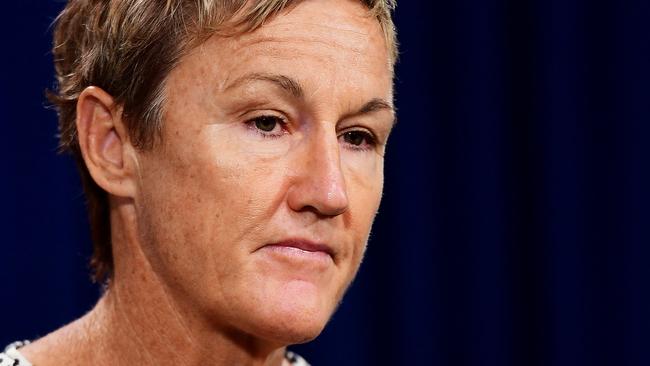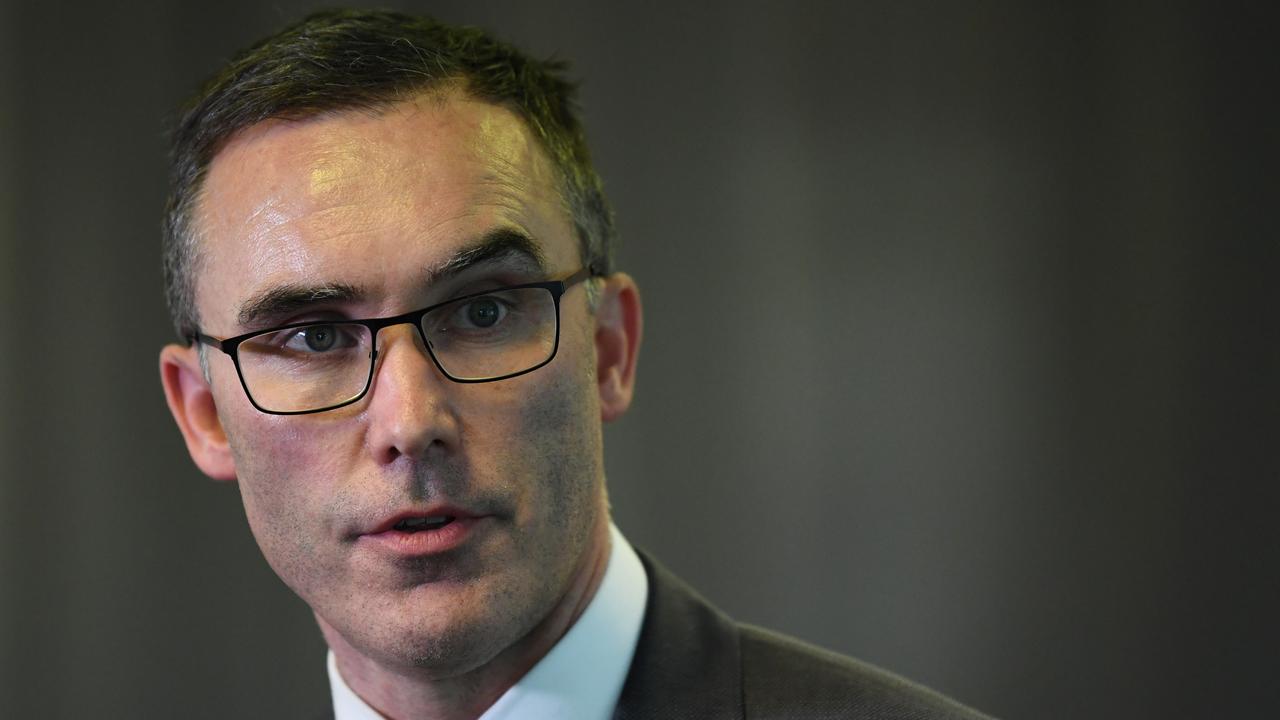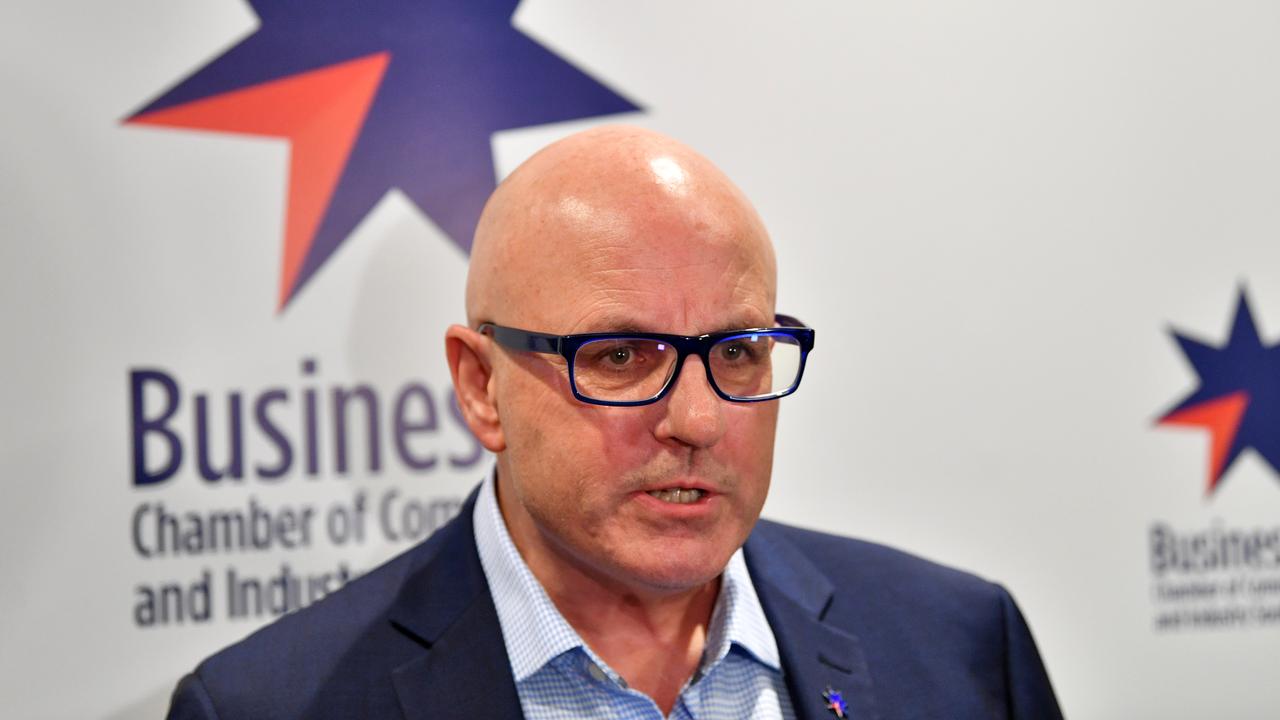Child carer’s horror house of evil clowns and cruel abuse
Terrified children placed with a woman who threatened them with an evil clown and told them their hands would be cut off.

Young children placed with a Northern Territory registered carer were told their hands would be cut off for stealing food, and that evil clowns would “get them” if they did anything wrong.
A harrowing picture has emerged of vulnerable children who were anxious and frightened of their carer, made to sleep in beds that reeked of urine, and were seen carrying rotten food.
NT Children’s Commissioner Colleen Gwynne’s report also describes the carer’s claims to be both Aboriginal and non-Aboriginal going unchallenged, her undisclosed mental health history and that she was the subject of numerous child abuse and neglect claims that did not stop children being placed with her.
The children described the carer as cruel but begged Territory Families’ workers not to tell her what they disclosed, including drawing pictures of how one child was taken out of bed at night, driven into the bush and made to stand in the headlights to wait for “demons” to come.
The former carer, named as FC, is the subject of a second damning report in a week by Commissioner Gwynne. It follows her investigation, tabled in the NT parliament on Wednesday, into Territory Families’ succession of failures in the unrelated welfare case of a two-year-old toddler who was raped in Tennant Creek.
In a disturbing parallel, the commissioner found in the second report that Territory Families had done nothing to protect a vulnerable toddler left in the care of FC, even after she became the subject of 10 different investigations into child welfare, including two into the toddler’s safety.
In a clear breach of child protection policy, the toddler was allowed to remain in her care even after two other children were removed. One child, caught stealing food, described how the carer said people used to have their hands cut off for taking food.
The carer regularly showed the children pictures of evil clowns, which she said would come if they misbehaved.
In 2015, a case manager reported claims that FC had slapped a child across the face, while FC’s daughter had held another child’s head under water in the swimming pool, threatened her with a knife, and hit her with a spatula.
Neither child was interviewed about the incidents, and a report nine months later closed the case after finding “no abuse or neglect found”. When the two children were removed and placed in respite care with their grandmother, it was noted they had lice, low iron, their clothes resembled rags and one child had sores on his head.
The commissioner examined 10 cases relating to claims that children in FC’s care were physically abused, neglected or emotionally harmed; five claims were substantiated.
Commissioner Gwynne criticised a lack of basic record-keeping, with many department records showing incorrect names of children, wrong dates and no placement agreements for children put in respite care. She noted that welfare workers rarely entered FC’s home, but on a visit prompted by various complaints found the house was “grotty and unhygienic”. Undersized children’s beds smelled of urine.
In 2016, a case worker noted that children in FC’s care were seen with mouldy and dehydrated food. One child reported they were kept outside for long periods and were always hungry.
Doubts about the carer’s suitability were flagged from the early 1980s when the woman — who has several biological children — sought financial help from welfare authorities on 30 occasions. The Weekend Australian has learned one of her biological children was the subject of child protection reports dating back as far as 2003. One report also questioned the carer’s state of mind.
On three occasions, FC completed a carer application form nominating as Aboriginal, but in the interview process she said she was born to European parents who moved to Australia and that she was not Aboriginal. She was subsequently recorded as both a non-Aboriginal carer and Aboriginal carer, and children were placed in her care because she was viewed as “meeting the children’s cultural and identity needs”.
Commissioner Gwynne said Territory Families “failed in their duty of care” towards five children.
A Territory Families’ response attached to the report states many of the commissioner’s recommendations are being implemented, including a Quality Assurance Framework and revision of the Concerns for the Safety of the Children in Care policy.


